Every initiative is rooted in ground reality, not theory.
Free Schooling for Girls

Free Schooling for Girls
Marriage Aid for Needy

Marriage Aid for Needy
Health & Checkups

Health & Checkups
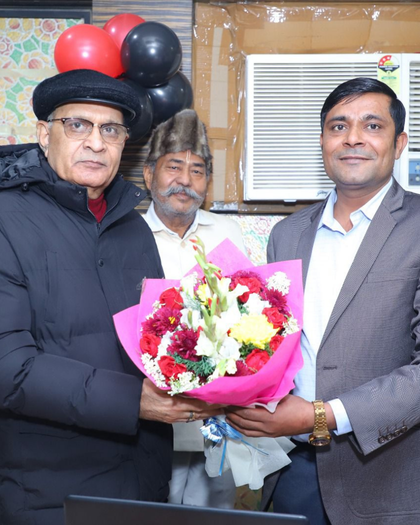
Built not by funding, but by trust
Kamayani Foundation didn’t start with money. It started with moments. A girl crying because her school uniform was torn and her parents couldn’t afford another. An elderly widow sitting alone during Diwali, watching her neighbours celebrate with sweets she hadn’t tasted in years. A young bride sitting in silence because her wedding was cancelled — there wasn’t enough money for even the basics.
These weren’t just stories. These were signs — signs that reminded us that dignity isn’t a luxury, it’s a right. That poverty isn’t always loud, but it is always present. That every corner of India still holds someone who’s waiting — not for sympathy, but for someone to show up.
We helped a girl write her board exams instead of dropping out. We arranged simple, beautiful weddings for daughters who deserved respect, not loans. We trained women in stitching and herbal product-making so that they didn’t have to depend on anyone. We brought medicine to villages where hospitals are a day away. We celebrated festivals with families who had forgotten what celebration felt like.
Kamayani walks into the spaces where others hesitate — because our work begins where dignity is missing.
Your Journey to Balance Begins Here
At Kamayani Foundation, our causes are not just programs — they are lifelines. Each initiative is rooted in the lived struggles of underprivileged girls and women across rural and urban India. From giving a child her first chance at education, to supporting dignified mass marriages, to ensuring health reaches forgotten villages — we work where the silence is loudest.
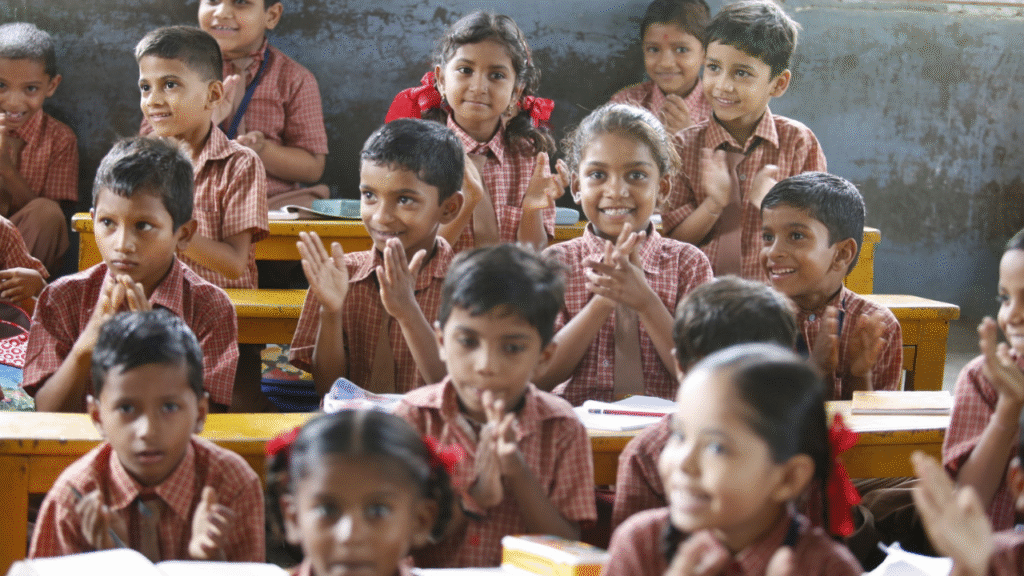
Padhai Pehla Kadam Hai
In homes where daughters were asked to cook instead of count, this campaign brings the first page of learning into their lives. We support rural girls with books, tuition, and school access — because every big dream begins with a small blackboard.
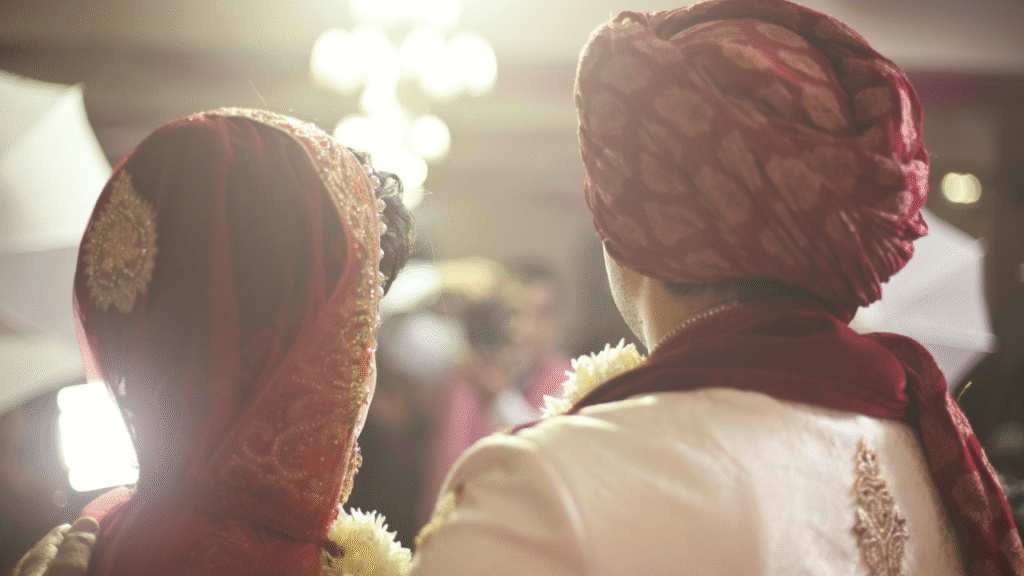
Samaan Se Vivaah, Karz Se Nahi
Helps underprivileged girls get married with grace — not guilt. With respectful ceremonies, full rituals, and basic essentials, we ensure that families don’t fall into debt just to complete a tradition. Daughters deserve blessings, not burdens.
Girls Supported
Free Medical Camps
Women Trained
Girls Supported
Our Objectives
What we do isn’t just service. It’s repair. It’s quiet restoration of hope, culture, safety, and agency. Every Kamayani program is designed with one goal — that no girl, no woman, no family, should be forgotten in their own home.
 Fees, books, transport — we remove the roadblocks that keep a girl from attending school.
Fees, books, transport — we remove the roadblocks that keep a girl from attending school.
Education remains out of reach for thousands, not because of lack of interest, but because of unaffordable uniforms, missing bus fare, or unspoken home responsibilities. We step in quietly — arranging daily travel, sponsoring textbooks, paying tuition — so that a child doesn’t have to pause her dreams because of ₹500. It’s not just access — it’s assurance.
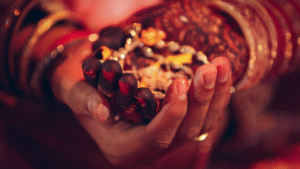 Respectfully arranged, fully registered, and with all essentials provided — so no girl is married without dignity.
Respectfully arranged, fully registered, and with all essentials provided — so no girl is married without dignity.
We organize collective weddings where families aren’t asked for dowry, where every bride receives her essentials — clothing, basic jewellery, utensils — and where the rituals are conducted with full legal registration. We ensure that no girl enters a marriage with shame or debt. What should be a sacred moment is never allowed to become a burden.
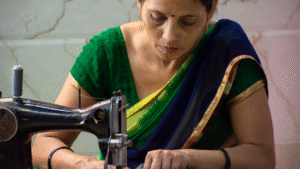 Vocational education that gives women agency over income — from tailoring units to herbal product making.
Vocational education that gives women agency over income — from tailoring units to herbal product making.
Our centres don’t just train — they incubate confidence. Women learn tailoring, packaging, embroidery, and natural product creation — with real orders and real markets. We don’t hand out certificates. We help create work that fits around a woman’s home, her children, and her time. Income here isn’t just financial — it’s emotional security.
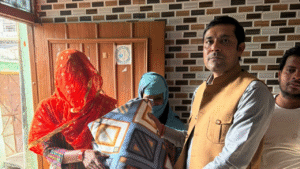 We help families celebrate festivals like Navratri, Diwali, and Holi with dignity — ensuring food, clothes, and community rituals are shared equally.
We help families celebrate festivals like Navratri, Diwali, and Holi with dignity — ensuring food, clothes, and community rituals are shared equally.
Poverty isolates. Especially during festivals. While others decorate homes, many sit in darkness. Kamayani steps in with food kits, saris, sweets, and shared puja spaces — not just for celebration, but for remembrance of belonging. We don’t distribute charity — we restore the feeling of “I also deserve joy.”
Free Education and Marriage Support
We offer free schooling and vocational education to underprivileged girls, along with arranging dignified, cost-free weddings.
Mass Marriages for Hindu Girls
Organizing respectful, collective wedding ceremonies for Hindu girls from economically weaker sections of society.
Spreading Social Awareness
Conducting training and educational programs to raise awareness about social issues, career paths, and life improvement strategies.
Health and Hygiene Initiatives
Creating solutions for sanitation, nutrition, disease prevention, and daily healthcare challenges faced by the poor and marginalized.
Environmental and Social Protection
Promoting cleanliness, ecology, and legal aid for victims of abuse and child exploitation, while supporting rural and urban welfare.
Relief for the Marginalized
Running support for the disabled, elderly, widows, and orphans and providing education and livelihood training in cottage industries.
Cultural Exchange and Unity
Organizing interfaith seminars, journeys, and events to build harmony between castes, cultures, and communities.
Branch Expansion
Setting up new branches wherever necessary to strengthen the reach and impact of our core mission.
Publishing for Public Good
Publishing and distributing relevant literature to further the goals of awareness, education, and social justice.
Support for Hindu Communities
Providing education, healthcare, and development opportunities exclusively for underprivileged Hindu families.
Festival-time Food Distribution
Offering meals and prasad during major Hindu festivals to ensure every family can celebrate with dignity.
Challenging Social Injustice
Raising a voice against inequality, discrimination, and harmful practices within Hindu society through awareness.
Hindu-Centric News Publication
Registering a newspaper with the Registrar of Newspapers of India (RNI) to highlight key issues affecting the Hindu community.
Use of Audiovisual Media
Leveraging visual storytelling and digital tools to share our message and spread awareness more effectively.
Preserving Traditional Arts
Reviving and supporting India’s rich legacy of traditional crafts and cultural skills through training and promotion.
Medical Camps and Charitable Clinics
Establishing free health camps and hospitals to serve the underserved with regular diagnostics and treatment services.
Welfare of Women Health Workers
Supporting female health workers, lab staff, doctors, chemists, and caregivers — while also empowering women through various.
Because we walk where pain lives quietly.
Girls FirstCultural RespectBooks Not BurdensVillage VoicesHonor RestoredSkill to SurviveMeals with Meaning
Words from those who saw our work up close.
I supported Kamayani’s girl education campaign and expected a generic update. Instead, I got a personal note, a photo of the girl in uniform, and a handwritten thank-you. That level of care — even for a small donor — truly touched me. They don’t just work on the ground; they keep you rooted in the story.
When we funded a mass marriage through Kamayani, we didn’t expect the dignity with which everything was handled. There was no showy event — just clear rituals, happy families, and a safe, respectful setup. That simplicity said more than any glitzy invite ever could. We knew we had backed something truly meaningful.
Most NGOs send polished reports. Kamayani sent us photos, trainer voice notes, and feedback from women attending tailoring classes we funded. Every small detail was shared with sincerity. We didn’t feel like distant donors — we felt part of a process. That level of human connection is what makes Kamayani different.
We reached out for help with my cousin’s wedding. Kamayani handled everything — from arranging the priest to organizing clothes. It was modest, but there was grace in every part. I still remember the smile on her face during the ceremony. It’s not easy to restore dignity — but they do it.
Their widow support initiative respects culture while offering real aid. It’s rare to see a team that understands both emotional and social needs so deeply. They don’t impose change; they offer choices. That balance — between tradition and progress — is what won me over. It’s support, not sympathy.
Real stories. Real change. One village at a time.
From girls who never imagined stepping into a classroom, to elderly women receiving medical care for the first time in their lives… from mass weddings freeing families from debt, to skill centres where women stitch not just clothes but futures — every scene in this film is lived truth. At Kamayani Foundation, change doesn’t come through speeches. It comes through action, compassion, and presence — day after day, village after village.

Frequently Asked Questions
Every question matters. We believe in simple, open answers that reflect how we truly work. Whether you’re donating, volunteering, or just exploring — your trust begins with clarity. This space holds the most asked questions — shared with the same care we bring to the field.
How do I know my donation is used properly?
We send every donor clear updates — including financial usage, event photos, and field stories. Our process includes documentation, receipts, and visible outcomes. We don’t believe in guesswork — we believe in trust built through transparency.
Can I sponsor a specific girl’s education?
Yes. We offer child-specific sponsorships where you’re paired with a student and receive term-wise updates, progress notes, and even occasional hand-drawn messages from her.
Do you help girls from all religious backgrounds?
We primarily work with Hindu families due to specific cultural needs, but our programs do not discriminate — anyone from a disadvantaged background is welcome.
Where are you based and where do you work?
Our head office is in Greater Noida, but we work across multiple districts in Uttar Pradesh and Bihar, including both rural and semi-urban locations.
Do you support widows and elderly people?
Yes, through ration drives, winter relief kits, and health checkups — we make sure the elderly, especially women, feel cared for.
